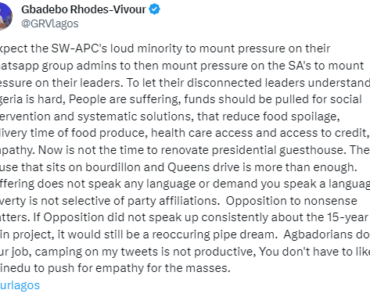[ad_1]
Title: INEC’s Compromised Plan: Partisan RECs Undermine Credible Elections
Introduction
The Independent National Electoral Commission (INEC) plays a crucial role in ensuring free, fair, and credible elections in Nigeria. However, recent allegations of the appointment of partisan Resident Electoral Commissioners (RECs) who are loyal to specific political parties have raised concerns about the integrity and impartiality of the electoral process. This article seeks to shed light on how these appointments complicate INEC’s plan for credible elections and the potential consequences for democracy in Nigeria.
The Concept of Partisan RECs
The appointment of RECs is meant to guarantee the independence and impartiality of INEC activities. However, allegations of political bias have arisen, as it is believed that some recent appointments were influenced by political affiliations. These partisan RECs, loyal to specific political parties, can negatively impact the credibility of elections and democratic processes.
Undermining Credibility
1. Impartiality compromised: The primary role of the RECs is to oversee the electoral process in their states. If these individuals have displayed bias towards political parties during their appointments, it becomes challenging to assume they will act impartially when their parties of preference are involved in elections. This directly undermines the credibility of the electoral process.
2. Influencing the electoral outcome: Partisan RECs have the potential to manipulate the electoral process to favor their affiliated political parties. They may introduce subtle biases, including biased voter registration, manipulation of electoral materials, or biased deployment of election personnel. These actions can result in unfair outcomes and shake public confidence in the electoral system.
3. Perpetuating a culture of mistrust: The appointment of partisan RECs adds fuel to existing doubts about the impartiality of INEC. The public’s trust in the electoral process is essential for a vibrant democracy, and any breach of that trust undermines citizens’ belief in the fairness and legitimacy of elections. This erosion of trust can foster political apathy, discourage participation, and lead to greater social and political unrest.
Consequences for Democracy
1. Weakening democratic institutions: Democracy thrives on the foundation of strong and independent institutions. When partisan RECs are appointed, the INEC loses its credibility as a neutral institution overseeing the electoral process. This can have a ripple effect, leading to a weakened democracy in which the will of the people is not genuinely represented.
2. Polarization and conflict: Partisan appointments can deepen political polarization and increase the potential for election-related violence. When the electoral process is tarnished with allegations of bias, it creates an environment where conflicting political parties and their supporters may take matters into their own hands. The adverse consequences of such conflicts can be detrimental to peace and stability.
The Way Forward
1. Transparent and objective selection process: INEC must establish a transparent and rigorous selection process for appointing RECs. Emphasizing merit, independence, and integrity in the selection process will help reduce the chances of partisan appointments.
2. Strengthening legal safeguards: Legislative measures should be implemented to ensure that the appointment process is free from political interference. Robust legal safeguards can be put in place to deter partisan appointments and hold those involved accountable.
3. Civil society engagement: Civil society organizations should actively monitor the appointment process and advocate for transparency and fairness. Their engagement can help highlight any biases or inconsistencies in the selection of RECs, ensuring the process remains unbiased.
Conclusion
The appointment of partisan RECs loyal to political parties erodes the credibility of INEC and undermines its mission to conduct free, fair, and credible elections. The consequences of such appointments extend beyond compromised electoral outcomes, eroding trust in the democratic process and leading to political unrest. A transparent and objective appointment process, supported by strong legal safeguards and robust civil society engagement, is crucial to preserving the integrity of INEC and ensuring the consolidation of Nigeria’s democracy.
[ad_2]
→ READ ALSO : Your people are conducting a stop and search at Admiralty Way in Lekki
→ READ ALSO : Nigerian TikTok user calls out Nigerian embassy in New York for allegedly not discharging their duty effectively
Suivez tous les scores en direct ici !
























